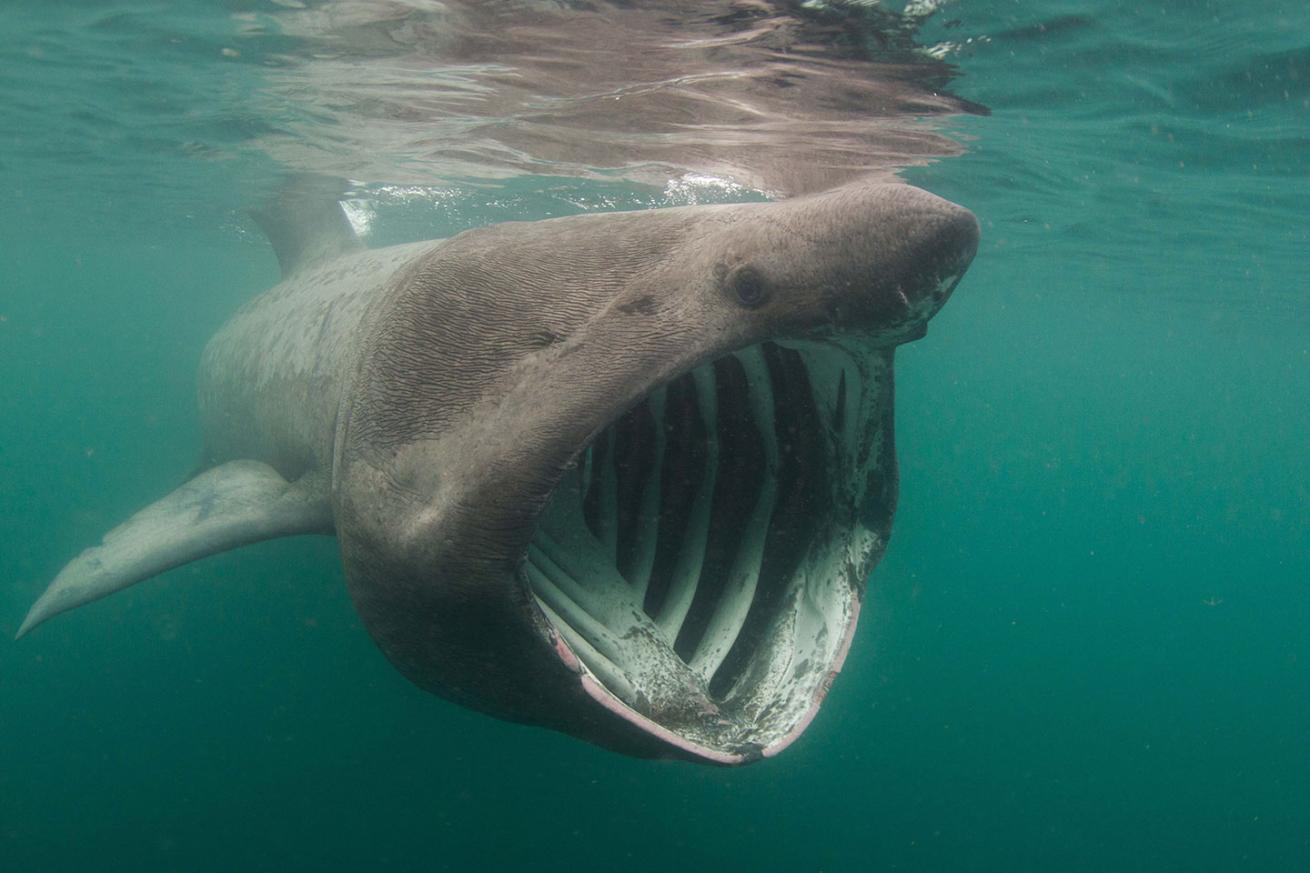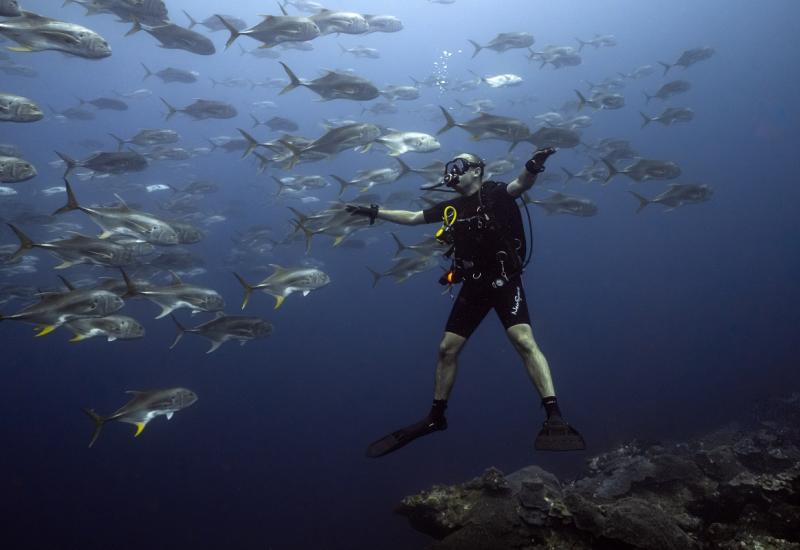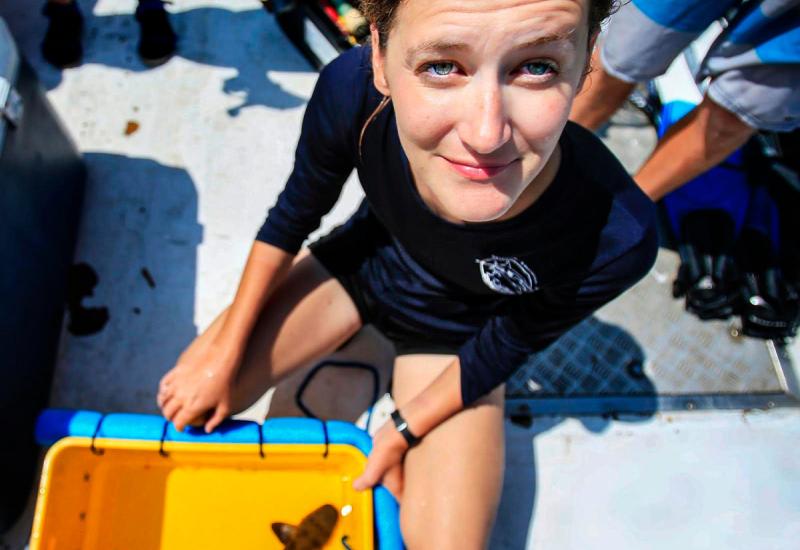Researchers: Basking Sharks Follow the Sun

ShutterstockScientists was once thought that the giant, plankton-eating basking shark hibernated in the waters off the UK and Ireland, but evidence in recent years has debunked this theory.
University of Exeter, Devon UK— Scientists from the University of Exeter have discovered some basking sharks spend their winters off Portugal and North Africa, some head to the Bay of Biscay, and others choose a staycation around the UK and Ireland.
Long-term satellite tracking by researchers showed the sharks' variable seasonal migrations in the northeast Atlantic Ocean. The data shows basking sharks head south during the winter.
Little was known about basking sharks’ winter behavior as they spend little time at the surface and are often far from land, so the researchers used cutting-edge satellite tracking to carry out the most detailed ever study of their migrations.
The researchers tagged 70 sharks, and of the 28 tags which continued transmitting for more than five months, they found most sharks either stayed near the UK or swam to the waters off Spain, Portugal, and North Africa. A smaller number spent the winter in the Bay of Biscay, west of France.
"Knowing where these animals are all year round allows us to understand the threats they face," Philip Doherty, an environmental scientist at Exeter, said in a news release. "This is essential information if we want to protect them, especially as they swim far outside U.K. waters, meaning any conservation efforts must be international."
Dr. Suzanne Henderson, of Scottish Natural Heritage, which helped fund the research, added: “This huge and mysterious shark has intrigued us as a nation for many years, and evolving tagging technology is now allowing us to piece together vital parts of their life cycle.
The basking shark is the second-largest fish species after the whale shark and one of three plankton-eating sharks along with the whale shark and megamouth shark. The International Union for Conservation of Nature lists the basking shark as vulnerable, but the northeast Atlantic population is listed as endangered. The greatest threat to the species is commercial fishing nets, but ecologists say basking sharks are also threatened by boat strikes, pollution and ocean engineering projects.
“Our partnership with the University of Exeter has confirmed that the Sea of the Hebrides is an important destination in the migratory cycle for the sharks, and Scottish ministers are currently considering our proposal to designate it a Marine Protected Area to help the species,” says Henderson.
"We don't yet know whether individuals make the same migration each year or alter their behavior based on factors such as body condition, reproduction and food availability," said Matthew Witt, a marine ecologist at Exeter. "The primary drivers behind basking shark migrations are still unclear but they may include mating, searching for foraging grounds and finding water of preferred temperature."
Researchers published their most recent basking shark findings in the journal Scientific Reports.










